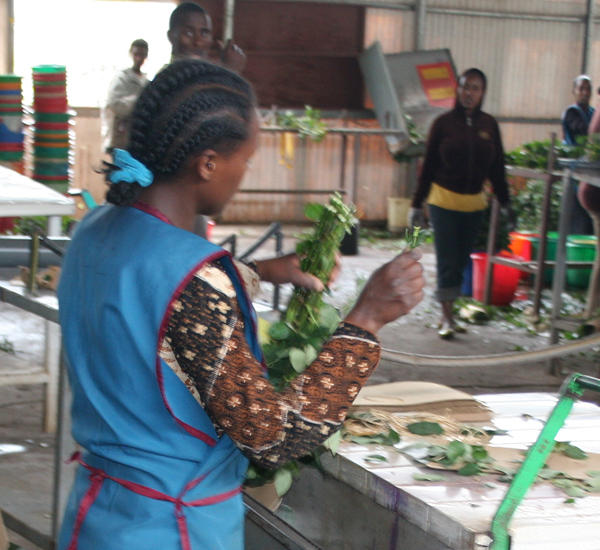Health at workplace in low income countries
Economic growth and new industries creates new opportunities, but also challenges. Work-related diseases and injuries are increasing.

Main content
This project aims to improve the working conditions and reduce occupational injuries and diseases in Tanzania and Ethiopia. This will be done through developing high quality education programmes in Occupational Health Safety (OHS) disciplines at MUHAS and AAU in order to build competence of occupational health inspectors and capacity of academic staff for sustainable postgraduate programmes and relevant high quality research.
Read more about the project at NORHED website
Most persons in Tanzanian workforce are working in agriculture, but several types of industries are rapidly increasing, such as mining and different types of manufacture. The magnitude of occupational accidents and diseases arising from the economic activities in Tanzania is yet to be ascertained due to a total lack of coordinated national reporting system for such incidents. In 2003 a new OHS Act was enacted in Tanzania, providing for safety and health of people at work. An OHS national policy has been formulated and an executive agency is given the responsibility for coordinating the policy making and implementation of the OHS law -OSHA. Hence, the situation seems promising in the respect of possible improvements for the worker’s situation.
Ethiopia has shown an impressive economic growth over the last few years and improved agricultural products and massive industrialization activities are underway in both the urban and rural areas, increasing the numbers of workers. Health and safety related to these types of work places is hardly developed, as there is little knowledge in the country among workers, employers, health personnel and policy makers. Unofficial reports indicate that occupational injuries and diseases are increasing, but there is no statistics available to describe the situation properly.
Free online course from UiB: Occupational Health in Developing Countries
Workers and especially workplace/factory inspectors need to be well informed about the various hazards of the modern workplaces where little competence is available. To attain this there is a need to improve the capacity and competence of responsible departments within the East African universities, particularly in Tanzania and Ethiopia, as well as Ministries of Labour, Social Affairs and Ministries of Health. Occupational health and safety in both Tanzania and Ethiopia is still in its early stages of development. Tanzania and Ethiopia have a few competent persons in this field, but very few courses are offered by national universities in this field and the number of teachers is insufficient. Hence, there is both a need to develop sustainable educational programmes in OHS disciplines, strengthen the capacities of academic staff at the universities for teaching as well as conducting high quality relevant research as well as developing solid training programmes for occupational health inspectors. Capacity building within this field is a priority from both governments.
More research projects from The Centre for International Health, UiB


